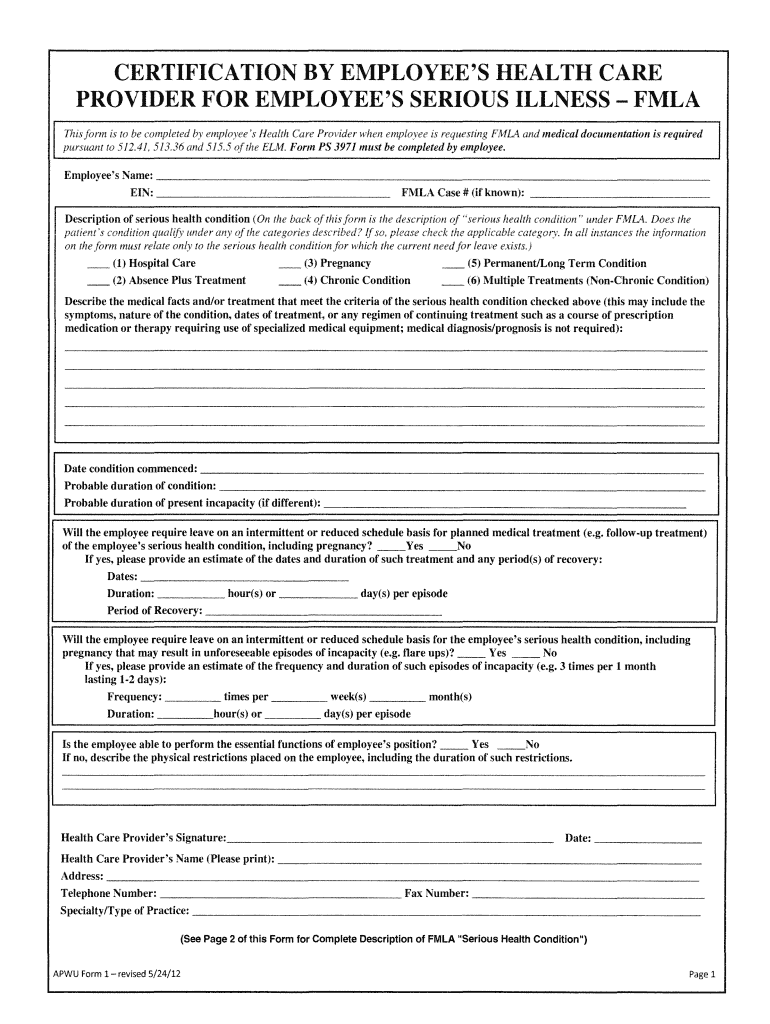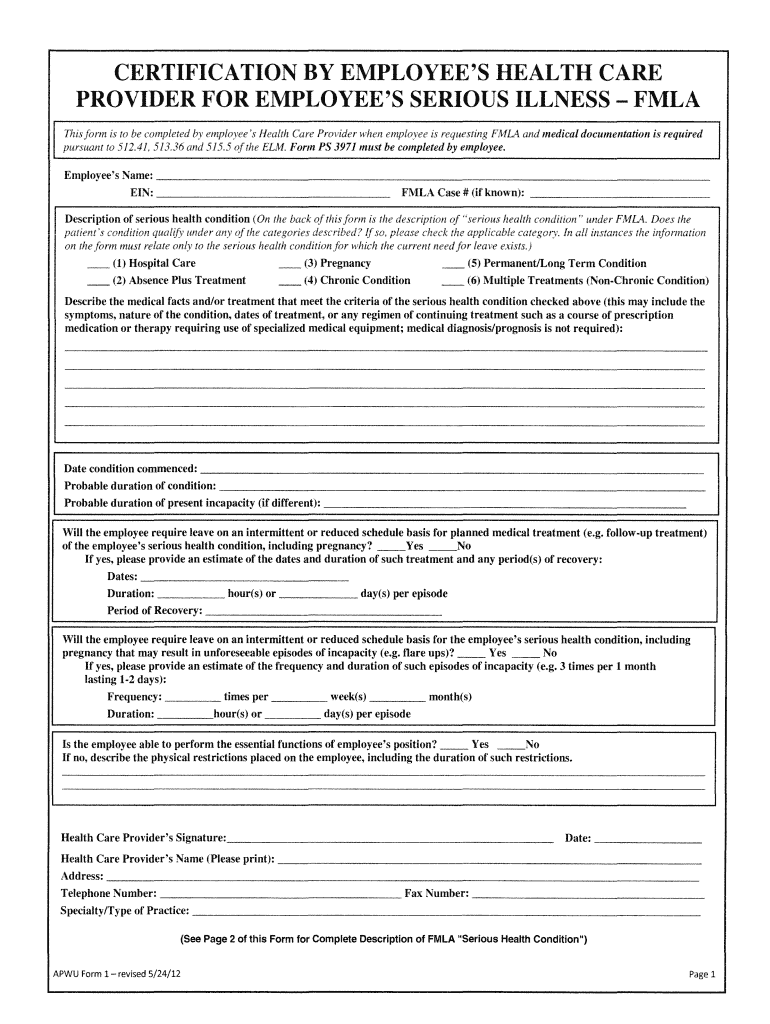5 Essential FMLA Paperwork Tips for Doctors

The Family and Medical Leave Act (FMLA) provides eligible employees with up to 12 workweeks of unpaid, job-protected leave each year. For healthcare providers, certifying this leave can be a meticulous process. Here are five essential FMLA paperwork tips for doctors to streamline the certification and ensure compliance:
Understand FMLA Basics

Before diving into the specifics of FMLA certification, it’s crucial to understand what FMLA entails:
- Eligibility: Employees must have worked for their employer for at least 12 months, worked 1,250 hours over the past 12 months, and work at a location where the company employs 50 or more employees within 75 miles.
- Purpose: FMLA covers serious health conditions for the employee or immediate family members, birth or adoption of a child, and exigencies arising out of military duty.
- Documentation: Employers can request documentation from healthcare providers to support the FMLA request.
🔍 Note: Remember that not understanding the basic requirements can lead to improper certification, which can cause legal issues for both the employee and the employer.
Ensure Proper Documentation

When completing FMLA certification:
- Use the Correct Forms: Employers typically provide the necessary forms (WH-380E, WH-380F, WH-384, etc.). Ensure you are using the most current versions.
- Be Thorough: Provide complete information regarding the medical condition, expected duration of the condition, and its effect on the employee’s work ability.
- Sign and Date: Both the patient’s authorization and your signature need to be present, ensuring the authenticity of the certification.
Protect Patient Confidentiality

Handling FMLA paperwork requires adherence to patient privacy laws:
- HIPAA Compliance: Information shared should be minimal yet sufficient for FMLA certification.
- Release Forms: Always check for a signed medical release from the patient before releasing any information.
- Secure Transmission: Ensure all documents are transmitted securely, whether in-person or electronically.
🔒 Note: Violation of HIPAA can result in serious consequences for healthcare providers, including fines and loss of trust from patients.
Communicate Clearly with Employers

Employers rely on the information you provide to make decisions about employee leave:
- Detailed Descriptions: Describe the employee’s health condition and how it affects their work capacity without breaching confidentiality.
- Follow-Up: Keep employers informed of any changes in the condition or recovery that might affect the leave duration.
- Intermittent or Reduced Leave Schedule: If applicable, note any patterns or schedules for reduced work hours or intermittent leave.
Maintain Complete Records

Documentation can be critical for both legal compliance and continuity of care:
- Keep Copies: Maintain copies of all FMLA certifications and supporting medical records in the patient’s file.
- Documentation Practices: Ensure records are dated, signed, and kept in a secure manner for future reference or audits.
- Accuracy: Double-check entries for accuracy to avoid potential disputes or legal challenges.
By following these essential FMLA paperwork tips, doctors can ensure they are not only complying with the law but also providing the necessary support for their patients. Proper certification can help maintain employee rights and protect the healthcare provider's practice from potential legal pitfalls. Remember, the process of FMLA certification is not just a legal formality but an important part of patient care, ensuring that employees can take the time they need to recover or care for loved ones without undue stress.
What should I do if an employee’s condition changes during FMLA leave?

+
Notify the employer as soon as possible with any updates or changes to the condition that could affect the leave. This ensures that the leave continues to be appropriately managed and that the employee’s rights are protected.
Can I disclose the specific diagnosis on the FMLA paperwork?

+
Only disclose what is necessary to certify the leave. HIPAA protects patient privacy, so avoid sharing unnecessary details unless explicitly authorized by the patient.
What happens if I’m late in providing FMLA certification?

+
Employees can lose their FMLA protection if the certification isn’t provided in a timely manner. It’s important to expedite the process as delays can impact an employee’s rights under the Act.